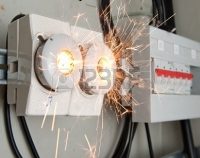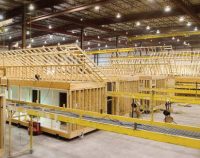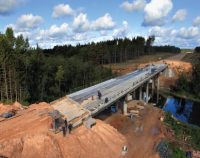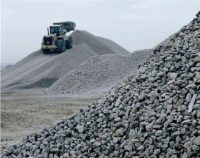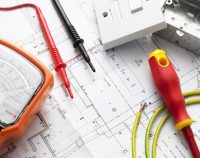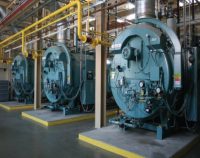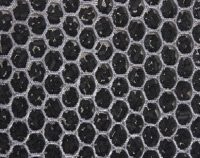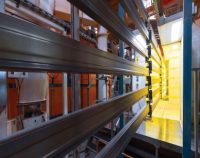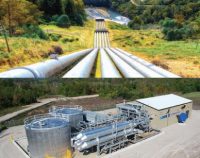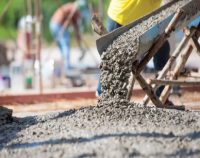Showing 21–40 of 119 results
AC Motors, Transformers, Instruments & Distribution Systems: 6 PDH
$36.00 Add to cartThis course provides an excellent overview of 1) AC motor theory, applications, and industrial usage, 2) Transformers and transformer design, 3) Instruments and measuring devices, and 4) distribution systems.Instructor: Juan Pesante, PEThis course provides an excellent overview of 1) AC motor theory, applications, and industrial usage, 2) Transformers and transformer design, 3) Instruments and measuring devices, and 4) distribution systems.
SPECIFIC KNOWLEDGE OR SKILL OBTAINED
This course teaches the following specific knowledge and skills:
- AC motor theory
- AC motor construction and operation
- AC motor applications and usage
- Transformer theory and design
- Electronic Measuring devices
- Instrument construction
- Distribution systems
CERTIFICATE OF COMPLETION
You will be able to immediately print a certificate of completion after passing a 20 question multiple-choice quiz. The quiz can be retaken unlimited times until a passing grade of 70% or better is earned. This course satisfies 6 professional development hours (PDH) of continuing education.
Preview CourseClick “Preview Course” to View Prior to PurchaseClick “Add to Cart” to Purchase and Access QuizAC Theory, Circuits, Generators & Motors: 6 PDH
$36.00 Add to cartAC circuit theory can cause engineers a lot of difficulty; however this course will attempt to make the concept easy to see and understand. Numerous pictures and graphs are used to show the basic fundamentals of how Alternating Current works. This course also details the general theory and equations for AC Circuit analysis, AC generators and AC Motors.Instructor: Juan Pesante, PEAC circuit theory can cause engineers a lot of difficulty; however this course will attempt to make the concept easy to see and understand. Numerous pictures and graphs are used to show the basic fundamentals of how Alternating Current works. This course also details the general theory and equations for AC Circuit analysis, AC generators and AC Motors.
SPECIFIC KNOWLEDGE OR SKILL OBTAINED
This course teaches the following specific knowledge and skills:
- AC motor theory
- AC motor construction and operation
- AC motor applications and usage
- Transformer theory and design
- Electronic Measuring devices
- Instrument construction
- Distribution systems
CERTIFICATE OF COMPLETION
You will be able to immediately print a certificate of completion after passing a 20 question multiple-choice quiz. The quiz can be retaken unlimited times until a passing grade of 70% or better is earned. This course satisfies 6 professional development hours (PDH) of continuing education.
Preview CourseClick “Preview Course” to View Prior to PurchaseClick “Add to Cart” to Purchase and Access QuizAdvanced Fabricated Building: 6 PDH
$36.00 Add to cartIn this course the student will understand the building requirements of manufactured structures, particularly residential homes in Florida, as well as understand the various fabrication materials used for other advanced building projects. Instructor: Raymond Bosek, PESPECIFIC KNOWLEDGE OR SKILL OBTAINED
This course teaches the following specific knowledge and skills:
- Discuss building codes & HUD codes for fabricated structures
- Understand the materials & products of manufactured buildings
- Discuss systems & systems testing of manufactured buildings
- Explain the various fabrication products for advanced construction
- Discuss the benefits and drawbacks of each of these fabrication products
CERTIFICATE OF COMPLETION
You will be able to immediately print a certificate of completion after passing a 20 question multiple-choice quiz. The quiz can be retaken unlimited times until a passing grade of 70% or better is earned. This course satisfies six professional development hours (PDH) of continuing education.
Preview CourseClick “Preview Course” to View Prior to PurchaseClick “Add to Cart” to Purchase and Access QuizAnalysis of National Charging infrastructure for Electric Vehicles: 3 PDH
$18.00 Add to cartThis courses addresses the fundamental question of how much plug-in electric vehicle (PEV) charging infrastructure is needed in the United States to support both plug-in hybrid electric vehicles (PHEVs) and battery electric vehicles (BEVs). In this course the student will understand PEV charging infrastructure requirements and analyze a range of plausible scenarios that consider the relationship between the evolution of the PEV fleet and charging infrastructure.Instructor: Juan Pesante, PESPECIFIC KNOWLEDGE OR SKILL OBTAINED
This course teaches the following specific knowledge and skills:
- Understand residential and non-residential electric vehicle charging requirements
- Discuss existing vehicle and infrastructure status
- Understand different scenarios of growth
- Explain direct current fast charging growth for corridor charging
- Discuss overall infrastructure changes required for models and estimates
CERTIFICATE OF COMPLETION
You will be able to immediately print a certificate of completion after passing a 20 question multiple-choice quiz. The quiz can be retaken unlimited times until a passing grade of 70% or better is earned. This course satisfies three (3) hours of professional development (PDH).
Preview CourseClick “Preview Course” to view prior to purchaseClick “Add to Cart” to purchaseApproach Roadway Deformations: 4 PDH
$24.00 Add to cartIn this course the student will understand roadway approach embankment design and construction and methods to mitigate deformations typically seen in these structure, including the infamous “bump” encountered at the approach to structure interface.Instructor: Raymond Bosek, PESPECIFIC KNOWLEDGE OR SKILL OBTAINED
This course teaches the following specific knowledge and skills:
- Explain typical approach roadway deformation problems
- Discuss internal and external deformation
- Understand computation of immediate and consolidation settlements
- Explain deformation design solutions
- Understand construction monitoring and quality assurance
CERTIFICATE OF COMPLETION
You will be able to immediately print a certificate of completion after passing a 20 question multiple-choice quiz. The quiz can be retaken unlimited times until a passing grade of 70% or better is earned. This course satisfies four (4) hours of professional development (PDH).
Preview CourseClick “Preview Course” to view prior to purchaseClick “Add to Cart” to purchaseBases and Subbases for Concrete Pavements: 1 PDH
$6.00 Add to cartIn this course the student will understand the best practices for the design and construction of bases and subbases for concrete pavements as well as the effects on performance.Instructor: Raymond Bosek, PEIn this course the student will understand the concepts and benefits of internal curing for concrete pavements including mixture design, quality control, and studies of practical applications over the past two decades.SPECIFIC KNOWLEDGE OR SKILL OBTAINED
This course teaches the following specific knowledge and skills:
- Rigid Pavement Layer Configuration
- Design of Base/Subbase For Rigid Pavements
- Materials For Base and Subbase
- Construction and Subbase
- Cost Considerations
CERTIFICATE OF COMPLETION
You will be able to immediately print a certificate of completion after passing a 10 question multiple-choice quiz. The quiz can be retaken unlimited times until a passing grade of 70% or better is earned. This course satisfies one (1) professional development hour (PDH) of continuing education.
Preview CourseClick “Preview Course” to View Prior to PurchaseClick “Add to Cart” to Purchase and Access QuizBasic Electrical and DC Theory: 9 PDH
$50.00 Add to cartDo you know where electricity comes from? To be able to say yes to that question, you must understand a bit about the physics of matter. In this course you’ll learn the basics involving: matter, electron theory, magnetism, electromagnetism, the laws of electrical circuits, series circuits, parallel circuits, series-parallel circuits and the basic electrical formulas.Instructor: Juan-Pesante, PEDo you know where electricity comes from? To be able to say yes to that question, you must understand a bit about the physics of matter. In this course you’ll learn the basics involving: matter, electron theory, magnetism, electromagnetism, the laws of electrical circuits, series circuits, parallel circuits, series-parallel circuits and the basic electrical formulas.
This course also introduces the basic electricity and electrical circuit concepts associated with direct current. Topics include calculation of current, voltage, resistance and power in series, parallel and combination circuits with direct current (DC) power sources.
SPECIFIC KNOWLEDGE OR SKILL OBTAINED
This course teaches the following specific knowledge and skills:
- How is DC voltage produced and what does an electric circuit consist of
- What is a rectifier and how half-wave bridge rectifiers differ from full-wave bridge rectifiers
- What is the difference between a schematic diagram, one-line diagram, block diagram and wiring diagram
- What is resistivity and how temperature affects the resistance of materials
- What is the difference between open circuit, close circuit, and short circuit
- What primary characteristics identify a series, parallel or a combination circuit
- How to calculate the current and voltage drop in series, parallel or combination circuits
- How to calculate the equivalent resistance for a series, parallel or combination circuit
- What is meant by the terms voltage divider and current division
- How is electron flow theory different from conventional current theory
CERTIFICATE OF COMPLETION
You will be able to immediately print a certificate of completion after passing a 30 question multiple-choice quiz. The quiz can be retaken unlimited times until a passing grade of 70% or better is earned. This course satisfies 9 professional development hours (PDH) of continuing education.
Preview CourseClick “Preview Course” to View Prior to PurchaseClick “Add to Cart” to Purchase and Access QuizBatteries, DC Circuits, DC Generators, & DC Motors: 6 PDH
$36.00 Add to cartThis electrical training course provides a basic introduction to DC theory, electrical circuits, batteries and DC machinery (motors and generators). This course is essential to electrical engineers to refresh upon the basics and relearn the basic knowledge of electrical principals and equipment usages and applications.Instructor: Juan Pesante, PEThis electrical training course provides a basic introduction to DC theory, electrical circuits, batteries and DC machinery (motors and generators). This course is essential to electrical engineers to refresh upon the basics and relearn the basic knowledge of electrical principals and equipment usages and applications.
SPECIFIC KNOWLEDGE OR SKILL OBTAINED
This course teaches the following specific knowledge and skills:
- Battery theory and terminology
- Battery operations: series, parallel, primary, seconday, shelf life, etc
- Battery types: wet, dry, alkaline, etc
- Battery harzards
- Inductance
- Capacitance
- DC generator construction
- DC generator theory of operation
- DC generator voltage production, ratings, & losses
- DC motor theory
- DC motor construction and operation
CERTIFICATE OF COMPLETION
You will be able to immediately print a certificate of completion after passing a 20 question multiple-choice quiz. The quiz can be retaken unlimited times until a passing grade of 70% or better is earned. This course satisfies 6 professional development hours (PDH) of continuing education.
Preview CourseClick “Preview Course” to View Prior to PurchaseClick “Add to Cart” to Purchase and Access QuizBest Practices for O&M of Photovoltaic and Energy Storage Systems: 5 PDH
$30.00 Add to cartIn this course the student will understand how to reduce the cost and improve the effectiveness of operations and maintenance (O&M) for photovoltaic (PV) systems and combined PV and energy storage systems. The course follows the guide: Best Practices for O&M of Photovoltaic and Energy Storage Systems 3rd edition, published by the National Renewable Energy Laboratory.Instructor: Juan Pesante, PESPECIFIC KNOWLEDGE OR SKILL OBTAINED
This course teaches the following specific knowledge and skills:
- Understand standards of O&M of Photovoltaic and Energy Storage Systems
- Discuss prerequisites for a successful O&M program
- Understand dependencies on PV system type, site, and environmental conditions
- Explain system performance and O&M plans
- Discuss system monitoring and O&M implementation strategies
- Discuss estimating PV O&M costs
- Understand PV O&M cost survey information and trends
CERTIFICATE OF COMPLETION
You will be able to immediately print a certificate of completion after passing a 20 question multiple-choice quiz. The quiz can be retaken unlimited times until a passing grade of 70% or better is earned. This course satisfies five (5) hours of professional development (PDH).
Preview CourseClick “Preview Course” to view prior to purchaseClick “Add to Cart” to purchaseBlockchain Technology Overview: 3 PDH
$18.00 Add to cartIn this course the student will be introduced to Blockchain technology, from its history and beginnings, through the various components, models, and make-up and finally its applications and limitations. Instructor: Juan Pesante, PESPECIFIC KNOWLEDGE OR SKILL OBTAINED
This course teaches the following specific knowledge and skills:
- Understand the Origins of Blockchains
- Identify Blockchain Components and Models
- Explain Blockchain Forking and Contracts
- Explain Blockchain Smart Contracts
- Discuss Blockchain Limitations and Misconceptions
- Discuss Blockchain Applications Considerations
CERTIFICATE OF COMPLETION
You will be able to immediately print a certificate of completion after passing a 15 question multiple-choice quiz. The quiz can be retaken unlimited times until a passing grade of 70% or better is earned. This course satisfies three (3) professional development hours (PDH) of continuing education.
Preview CourseClick “Preview Course” to View Prior to PurchaseClick “Add to Cart” to Purchase and Access QuizBoiler Basics-Operation and Maintenance: 5 PDH
$30.00 Add to cartIn this course the student will understand steam generation, boilers and boiler components, and basic concepts in their operation and maintenance.Instructor: Seth Grablow, PESPECIFIC KNOWLEDGE OR SKILL OBTAINED
This course teaches the following specific knowledge and skills:
- Explain steam generation theory
- Explain boiler design requirements
- Discuss the different types of boilers
- Describe the different types of boiler fittings and accessories
- Identify the automatic controls associated with boilers
- Describe the different types of instruments and meters
- Explain the procedures associated with boiler water treatment and cleaning
- Describe the procedures for cleaning boiler firesides and watersides
- Describe the procedures associated with boiler maintenance
CERTIFICATE OF COMPLETION
You will be able to immediately print a certificate of completion after passing a 20 question multiple-choice quiz. The quiz can be retaken unlimited times until a passing grade of 70% or better is earned. This course satisfies five (5) hours of professional development (PDH).
Preview CourseClick “Preview Course” to view prior to purchaseClick “Add to Cart” to purchaseBuilding Envelope Impact on HVAC Energy Use: 3 PDH
$18.00 Add to cartHow airtight are the buildings you are responsible for? What is the energy load and indoor air quality like in your buildings? The only way to know is to perform a study. Despite common assumptions, measurements have shown that typical U.S. commercial buildings are not particularly airtight. In this course we present a recent simulation study on the impact of improving envelope airtightness in U.S. commercial buildings. You get documented, verifiable facts, report charts and graphs illustrating the findings, and a discussion from the report on the results of the study, Investigation of the Impact of Commercial Building Envelope Airtightness on HVAC Energy Use.Instructor: Seth Grablow, PEHow airtight are the buildings you are responsible for? What is the energy load and indoor air quality like in your buildings? The only way to know is to perform a study. Despite common assumptions, measurements have shown that typical U.S. commercial buildings are not particularly airtight.
In this course we present a recent simulation study on the impact of improving envelope airtightness in U.S. commercial buildings. You get documented, verifiable facts, report charts and graphs illustrating the findings, and a discussion from the report on the results of the study, Investigation of the Impact of Commercial Building Envelope Airtightness on HVAC Energy Use.
SPECIFIC KNOWLEDGE OR SKILL OBTAINED
This course teaches the following specific knowledge and skills:
- Discuss the reasons for performing a study
- Understand the method of analysis regarding building envelope tightness
- Describe the buildings used for the study
- Understand which climates allow for the most HVAC savings
- Explain the results of the study
CERTIFICATE OF COMPLETION
You will be able to immediately print a certificate of completion after passing a 10 question multiple-choice quiz. The quiz can be retaken unlimited times until a passing grade of 70% or better is earned. This course satisfies 3 professional development hours (PDH) of continuing education.
Preview CourseClick “Preview Course” to View Prior to PurchaseClick “Add to Cart” to Purchase and Access QuizCarbon Absorption of Volatile Organic Compounds: 3 PDH
$18.00 Add to cartCarbon adsorption is used in air pollution control to remove volatile organic compounds (VOCs) from low to medium concentration gas streams, when stringent outlet concentration must be met and/or recovery of the VOC is desired. This course covers the types of adsorbers, adsorption theory, and design procedures for carbon adsorption equipment.Instructor: Seth Grablow, PECarbon adsorption is used in air pollution control to remove volatile organic compounds (VOCs) from low to medium concentration gas streams, when stringent outlet concentration must be met and/or recovery of the VOC is desired. This course covers the types of adsorbers, adsorption theory, and design procedures for carbon adsorption equipment.
SPECIFIC KNOWLEDGE OR SKILL OBTAINED
This course teaches the following specific knowledge and skills:
- The types of carbon adsorption equipment and which are in most common use
- Define an adsorption isotherm and be able to recognize the equation for the Freundlich isotherm
- Adsorber sizing parameters
- Make adsorption and desorption time calculations
- Procedures for estimating carbon requirements
- Cost estimation procedures for carbon adsorption systems
CERTIFICATE OF COMPLETION
You will be able to immediately print a certificate of completion after passing a 20 question multiple-choice quiz. The quiz can be retaken unlimited times until a passing grade of 70% or better is earned. This course satisfies 3 professional development hours (PDH) of continuing education.
Preview CourseClick “Preview Course” to View Prior to PurchaseClick “Add to Cart” to Purchase and Access QuizChemical Deicers & Concrete Pavement: Impacts & Mitigation: 1 PDH
$6.00 Add to cartIn this course the student will understand the distresses caused to concrete by chemical deicers and methods used to minimize this distress.Instructor: Raymond Bosek, PEIn this course the student will understand the distresses caused to concrete by chemical deicers and methods used to minimize this distress.
SPECIFIC KNOWLEDGE OR SKILL OBTAINED
This course teaches the following specific knowledge and skills:
- Understanding of the use of chemical anti-icers and deicers
- Discuss how hydraulic cement paste (HCP) is traditionally protected from freeze-thaw damage
- Describe physical and chemical distress mechanisms
- Discuss strategies that can be employed to mitigate this distress
CERTIFICATE OF COMPLETION
You will be able to immediately print a certificate of completion after passing a 10 question multiple-choice quiz. The quiz can be retaken unlimited times until a passing grade of 70% or better is earned. This course satisfies one professional development hour (PDH) of continuing education.
Preview CourseClick “Preview Course” to View Prior to PurchaseClick “Add to Cart” to Purchase and Access QuizCircuit Protection Devices: 1 PDH
$6.00 Add to cartIn this course the student will learn the basics of circuit protection and the common devices and the attributes of these devices used for protecting circuit integrity. Instructor: Juan Pesante, PESPECIFIC KNOWLEDGE OR SKILL OBTAINED
This course teaches the following specific knowledge and skills:
- Discuss the reasons for protection (shorts, excessive current, heat)
- Explain the functions of fuses and circuit breakers
- Understand the different fuse types
- Understand the different fuse ratings
- Identify fuse designations
- Explain how to check and replace fuses safely
- Identify the different types of circuit breakers
- Understand circuit breaker ratings
- Discuss circuit breaker maintenance
CERTIFICATE OF COMPLETION
You will be able to immediately print a certificate of completion after passing a 10 question multiple-choice quiz. The quiz can be retaken unlimited times until a passing grade of 70% or better is earned. This course satisfies one professional development hour (PDH) of continuing education.
Preview CourseClick “Preview Course” to View Prior to PurchaseClick “Add to Cart” to Purchase and Access QuizCoating Types and Characteristics of Metals: 3 PDH
$18.00 Add to cartIn this course the student will understand the characteristics and applications of various industrial coatings and metal finishes. Instructor: Seth Grablow, PESPECIFIC KNOWLEDGE OR SKILL OBTAINED
This course teaches the following specific knowledge and skills:
- Discuss various metal coating types and characteristics
- Explain film-forming mechanisms and binders
- Understand driers, pigments, solvents, and miscellaneous additives
- Explain zinc-rich coatings and VOCs
- Understand powder coating, thermal sprays, galvanizing, etc.
CERTIFICATE OF COMPLETION
You will be able to immediately print a certificate of completion after passing a fifteen (15) question multiple-choice quiz. The quiz can be retaken unlimited times until a passing grade of 70% or better is earned. This course satisfies three (3) professional development hours (PDH) of continuing education.
Preview CourseClick “Preview Course” to View Prior to PurchaseClick “Add to Cart” to Purchase and Access QuizCompressed Air Energy Storage and Pumped Storage Hydropower Concepts: 4 PDH
$24.00 Add to cartIn this course the student will understand understand current Compressed Air Energy Storage (CAES) and Pumped Storage Hydropower (PSH) technologies and explore future advances of this technology by examining the feasibility of a variety of different concepts. Instructor: Juan Pesante, PESPECIFIC KNOWLEDGE OR SKILL OBTAINED
This course teaches the following specific knowledge and skills:
- Understand current CAES and PSH technologies and their challenges
- Discuss bulk energy storage applications and their requirements
- Discuss novel CAES technologies
- Discuss novel PSH technologies
- Explain the feasibility of these novel technologies
- Discuss technological gaps and barriers and further R&D needs
CERTIFICATE OF COMPLETION
You will be able to immediately print a certificate of completion after passing a 20 question multiple-choice quiz. The quiz can be retaken unlimited times until a passing grade of 70% or better is earned. This course satisfies four (4) hours of professional development (PDH).
Preview CourseClick “Preview Course” to view prior to purchaseClick “Add to Cart” to purchaseConcepts for Advanced Electrical Knowledge & Practical Troubleshooting: 8 PDH
$40.00 Add to cartIn this course, applicable to all professional engineering backgrounds, the student will understand the concepts of electricity and mechanism and design of electronics. They will understand how electrical components work from theory to design to the operation of common industrial circuits with tips for practical troubleshooting.Instructor: Juan Pesante, PESPECIFIC KNOWLEDGE OR SKILL OBTAINED
This course teaches the following specific knowledge and skills:
- Discuss the concepts of electricity & electronic theory
- Understand electromagnetism and electromotive force
- Understand current, voltage, and resistance in circuits
- Explain DC & AC circuit analysis
- Discuss capacitance and inductance
- Understand DC & AC measuring instruments and concepts
- Explain circuit analysis and troubleshooting circuits
CERTIFICATE OF COMPLETION
You will be able to immediately print a certificate of completion after passing a 30 question multiple-choice quiz. The quiz can be retaken unlimited times until a passing grade of 70% or better is earned. This course satisfies eight professional development hours (PDH) of continuing education.
Preview CourseClick “Preview Course” to View Prior to PurchaseClick “Add to Cart” to Purchase and Access QuizConcrete Construction: 6 PDH
$36.00 Add to cartMore concrete is used than any other man-made material in the world, about seven billion cubic meters of concrete – more than one cubic meter for every person on Earth.
Concrete is one of the most important construction materials. It is comparatively economical, easy to make, offers continuity and solidity, and will bond with other materials.
In this course the student will understand essentially all aspects of concrete construction including characteristics, mix design, formwork, joints, placement, finishing, and pre-cast. Instructor: Raymond Bosek, PESPECIFIC KNOWLEDGE OR SKILL OBTAINED
This course teaches the following specific knowledge and skills:
- Define characteristics of concrete
- Identify ingredients essential for good concrete
- Calculate concrete mix designs
- Determine methods and mixing times of concrete
- Describe the types of concrete forms and their construction
- Determine the types of ties for and placement of reinforcing steel
- Determine the location of construction joints
- Determine proper occasions for using the concrete saw
- Describe the proper procedures for placing concrete
- Describe the methods available for consolidating concrete
- Describe the finishing process for the final concrete surface
- Determine projects suitable for and lifting methods necessary for precast and tilt-up construction
CERTIFICATE OF COMPLETION
You will be able to immediately print a certificate of completion after passing a 21 question multiple-choice quiz. The quiz can be retaken unlimited times until a passing grade of 70% or better is earned. This course satisfies six professional development hours (PDH) of continuing education.
Preview CourseClick “Preview Course” to View Prior to PurchaseClick “Add to Cart” to Purchase and Access QuizConduits, Culverts, and Pipes Part I: 4 PDH
$24.00 Add to cartPart I of a two-part series. This course provides guidance on the design and construction of conduits, culverts, and pipes, and the design procedures for trench/embankment earth loadings, highway loadings, railroad loadings, surface concentrated loadings, internal/external fluid pressures, cast-in-place conduits for dams, circular reinforced concrete pipe for small dams and levees, and corrugated metal pipe for rural levees and culverts.Instructor: Raymond Bosek, PEPart I of a two-part series. This course provides guidance on the design and construction of conduits, culverts, and pipes, and the design procedures for trench/embankment earth loadings, highway loadings, railroad loadings, surface concentrated loadings, internal/external fluid pressures, cast-in-place conduits for dams, circular reinforced concrete pipe for small dams and levees, and corrugated metal pipe for rural levees and culverts.
SPECIFIC KNOWLEDGE OR SKILL OBTAINED
This course teaches the following specific knowledge and skills:
- Material selection
- Installation methods
- Loadings
- Method of analysis
- Joints & camber
- Life cycle design
CERTIFICATE OF COMPLETION
You will be able to immediately print a certificate of completion after passing a 20 question multiple-choice quiz. The quiz can be retaken unlimited times until a passing grade of 70% or better is earned. This course satisfies 4 professional development hours (PDH) of continuing education.
Preview CourseClick “Preview Course” to View Prior to PurchaseClick “Add to Cart” to Purchase and Access Quiz

